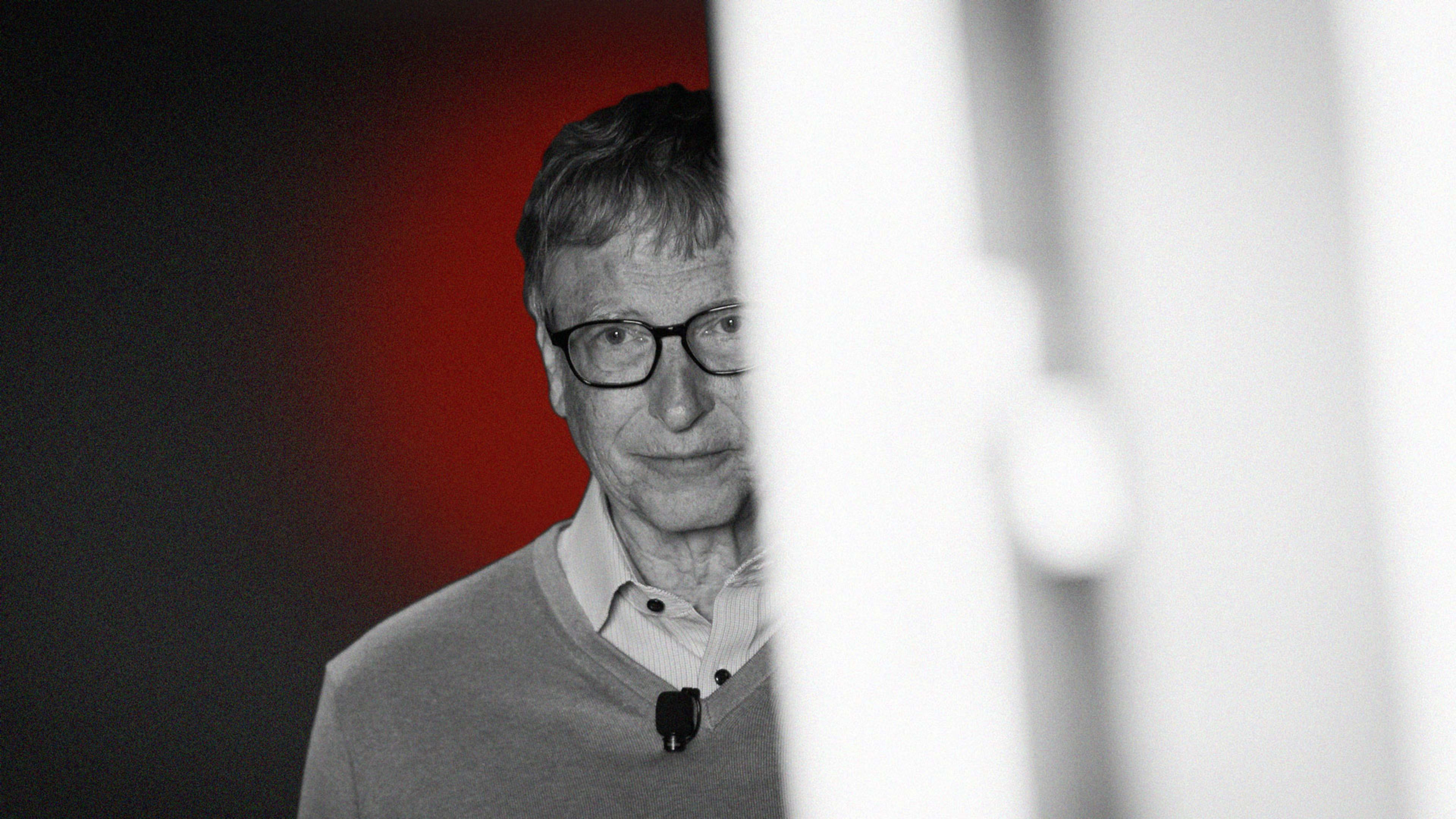“The Bible says there will be an Antichrist, a man that proclaims to be God, who will try to unite the world in a one-world government with a one-world financial system and establish a one-world religion,” says Pastor Adam Fannin, a controversial Florida preacher who has latched onto the anti-vaccination movement, in a recent YouTube video.
Who is this “man that proclaims to be God”? Fannin is referring to Microsoft founder and famed philanthropist Bill Gates, who has become the latest target of conspiracy theorists and anti-vaccination fringe groups.
Gates, who has long predicted the U.S. will be unprepared for a devastating pandemic, has been extremely active since the coronavirus emerged. He has donated $250 million toward the crisis, espoused the importance of developing a safe and effective vaccine, and supported the creation of a government-funded manufacturing infrastructure. But purveyors of disinformation are telling a different story, using several disparate false narratives about Gates. All of the conspiracy theories seem to sow doubt about an eventual vaccine. That’s not surprising, given how active anti-vaccine groups have been lately in spreading misinformation about false coronavirus cures.
In Fannin’s video, which has garnered 1.8 million views, he lambastes Gates for supporting vaccination and suggests that he is working on implantable devices with “digital certificates” and “quantum dot tattoos” that would identify people with COVID-19 and send their information to the United Nations. He goes on to call Gates the Antichrist. In Fannin’s other videos, he makes false claims about vaccines, including that they are “filled with filthy chemicals and aborted fetuses.”
Fannin also claims that Gates wants to use vaccination to “depopulate” the world, a myth that has been around for at least 10 years. As Snopes explains, Gates has said he sees slowing population growth as a key component of helping to lift people out of poverty—one of the goals of his philanthropic efforts. In addition to supporting new healthcare initiatives and birth control accessibility, Gates also touts mass vaccination as a way of lowering child mortality rates. He believes that as child mortality rates lower and stabilize, parents will choose to have fewer kids, because they are less worried their children will die.
The “quantum dot tattoos” that Fannin references are related to research funded by the Gates Foundation. In December, researchers at the Massachusetts Institute of Technology revealed the development of an invisible ink that could be stamped on kids’ skin at the time of vaccination as a record of their inoculation. The stamp can last five years, but it is just a stamp. It cannot be used to track a person’s whereabouts, as FactCheck.org notes.
As for the “digital certificates” and implantable devices, Gates has no plans to develop any technology that would diagnose and track people with COVID-19. This conspiracy theory seems to stem from a Reddit AMA, where Gates noted that at some point we will have digital certificates that will be able to track who has been sick, who has been tested, and who should receive a vaccine. But Gates’s words were twisted to make it look as though he had plans to commercialize an invasive form of mass population tracking.
Population tracking, even for the purpose of disease control, is a somewhat controversial topic and one that many people are paying attention to. Doctors already track individual human health through electronic health records, and human resource departments may start tracking employee health as people return to work. Apple and Google have announced a plan to create a privacy-focused, Bluetooth-based system to track people’s exposure to COVID-10, and organizations like MIT have proposed similar solutions. But a poll from Pew Research shows that 60% of Americans are skeptical that using cell phone data to track people who have come into contact with someone who is COVID-19 positive will do much to slow the spread of the virus. People also disagree about whether this kind of digital contact tracing should be done at all—61% of Democrats felt it was acceptable to track the disease’s movement this way, while only 45% of Republicans felt the same.
There are still more conspiracies surrounding Gates, including one that suggests he started the coronavirus or that he knew it was coming. A report from the New York Times revealed a cache of 16,000 posts on Facebook about Bill Gates with 900,000 likes and comments; Bill Gates conspiracies on YouTube showed similarly high engagement. Gates has long been the subject of conspiracy theories—like this one from 1996, which says that Microsoft is the invention of the Illuminati, or this one that suggests Gates is investing in antivirals as means of colonizing Africa. Conservative conspiracy theorists like Alex Jones have been suggesting Gates is using vaccines to “sterilize” and “depopulate” the world for at least a decade.
What is striking is the way such conspiracy theories—especially those with an anti-vaccine agenda—are allowed to proliferate on the web. Google (YouTube’s parent company) and Facebook have been making an effort to pull down content that would lead to someone getting hurt. But videos like Adam Fannin’s fall into a category of misinformation that isn’t considered detrimental enough to human health.
“We have clear policies and we quickly remove videos violating these policies when flagged to us. For borderline content, such as the videos sent over by Fast Company, we reduce recommendations,” a YouTube spokesperson said. They also noted that the majority of the 1.8 million views were not coming from recommendations being made on the platform, meaning that YouTube is not sending people to the Fannin video. Instead, other websites are directing viewers to it.
Regardless, YouTube is hosting health misinformation. Even though the company has made efforts to redirect viewers to trustworthy content, it still leaves loopholes for anti-vaxxers to exploit.
Recognize your brand’s excellence by applying to this year’s Brands That Matter Awards before the early-rate deadline, May 3.
